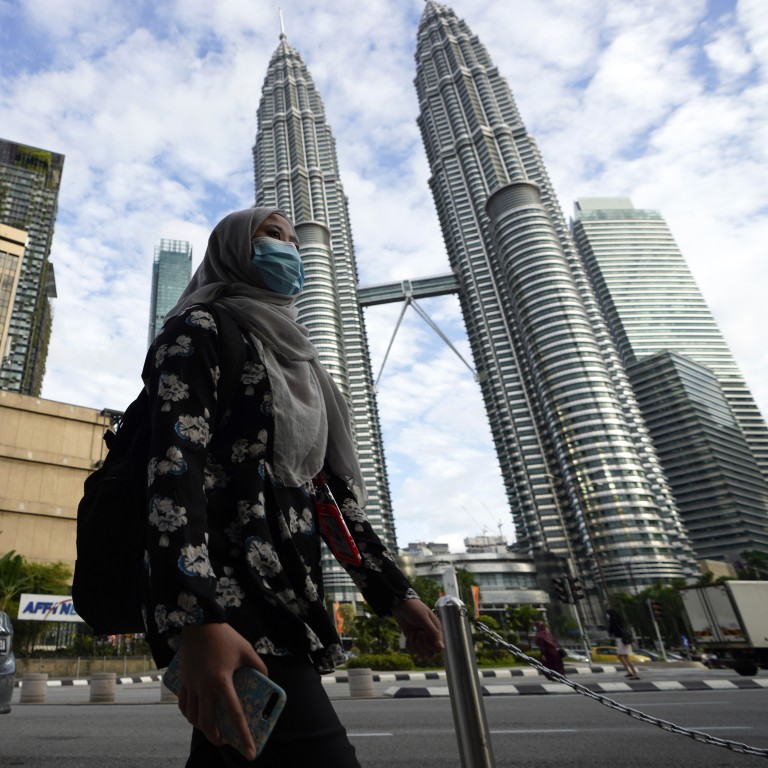
Malaysia declares emergency over Covid-19 surge, giving embattled Muhyiddin some breathing room
- The emergency will last until August 1 unless infections slow before then, with parliament suspended for the first time in more than 50 years
- The move gives PM Muhyiddin Yassin the ability to govern by fiat and will preserve his political future amid waning support, observers say
“This consent ... takes into account the personal safety of the people and the best interests of the country. It is also based on current Covid-19 statistics,” said the palace in a statement released early on Tuesday, adding that the king had met with Muhyiddin the evening before.
The emergency order – which will last until August 1 unless infections slow before then – will preserve Muhyiddin’s political future amid signs that he has lost majority support, observers said.
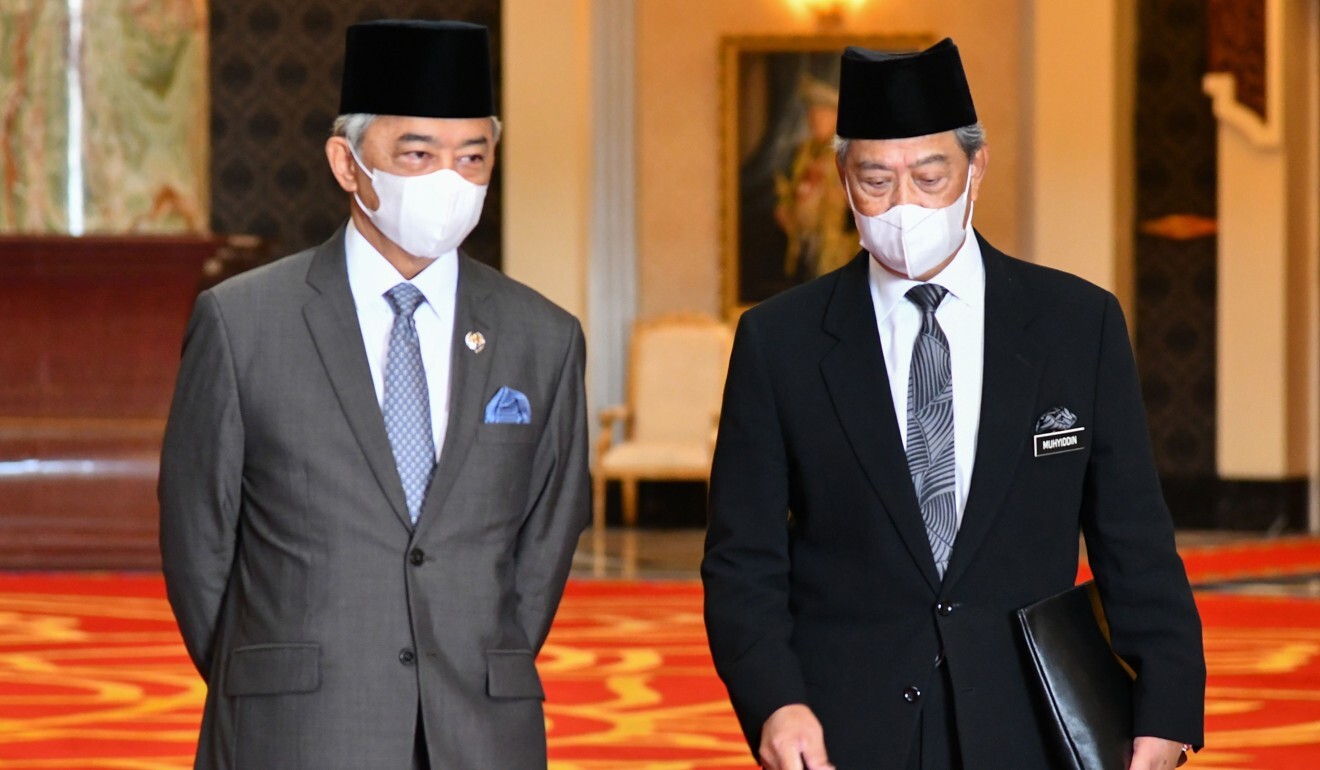
The declaration of a national emergency means that parliament will be suspended indefinitely, giving the embattled Muhyiddin – who came to power in February via a political coup and has a fragile grasp on power – the ability to govern by fiat.
The declaration will also allow the king to issue orders relating to the use of private hospital assets, temporary possession of land, buildings or movable properties of private hospitals as well as direct the use of private hospital resources to treat Covid-19 patients.
Malaysia’s Muhyiddin under renewed pressure as Umno considers split
In a live address, Muhyiddin said his civilian government would remain in charge during the emergency.
“Let me assure you that the civilian government will continue to function,” the prime minister said. “The emergency proclaimed by the [king] is not a military coup and curfew will not be enforced.”
In the same vein, he said the judiciary would remain “the beacon of justice in our country and I will never interfere in the business of the court”.
Muhyiddin also said no elections or by-elections would be held during the period of emergency.
In the nearly 30-minute speech delivered mainly in Malay, Muhyiddin at certain points spoke directly to international investors in English.
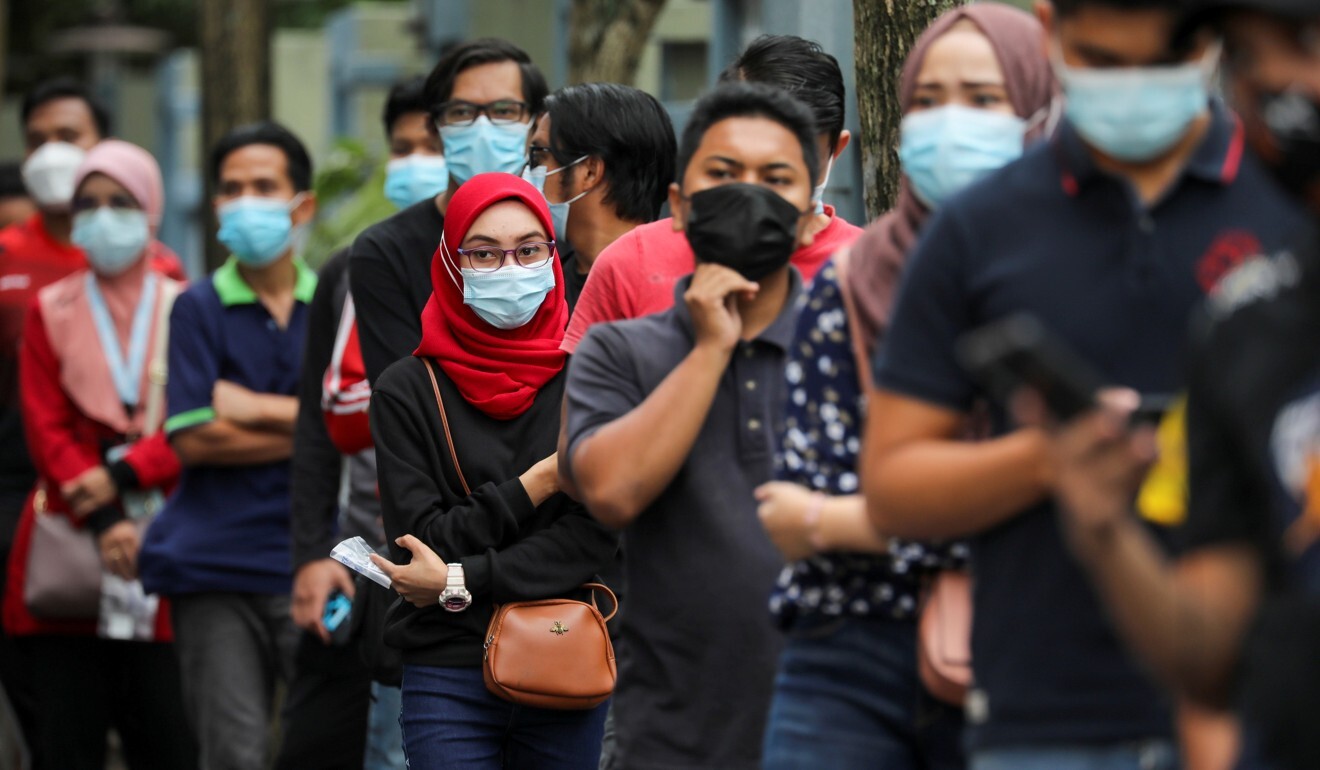
Under Malaysia’s constitution, a state of emergency can be declared by the king – on the advice of the prime minister – if the monarch is satisfied there is an imminent danger to the “security, economic life or public order” of the nation.
Malaysia’s last nationwide emergency was declared in 1969 in the aftermath of racially charged riots in Kuala Lumpur in which hundreds of people were killed.
Muhyiddin’s previous request to declare a national emergency was rejected by Sultan Abdullah in October, amid anger from the opposition who accused the leader of using the health crisis to stave off challenges to his leadership in parliament.
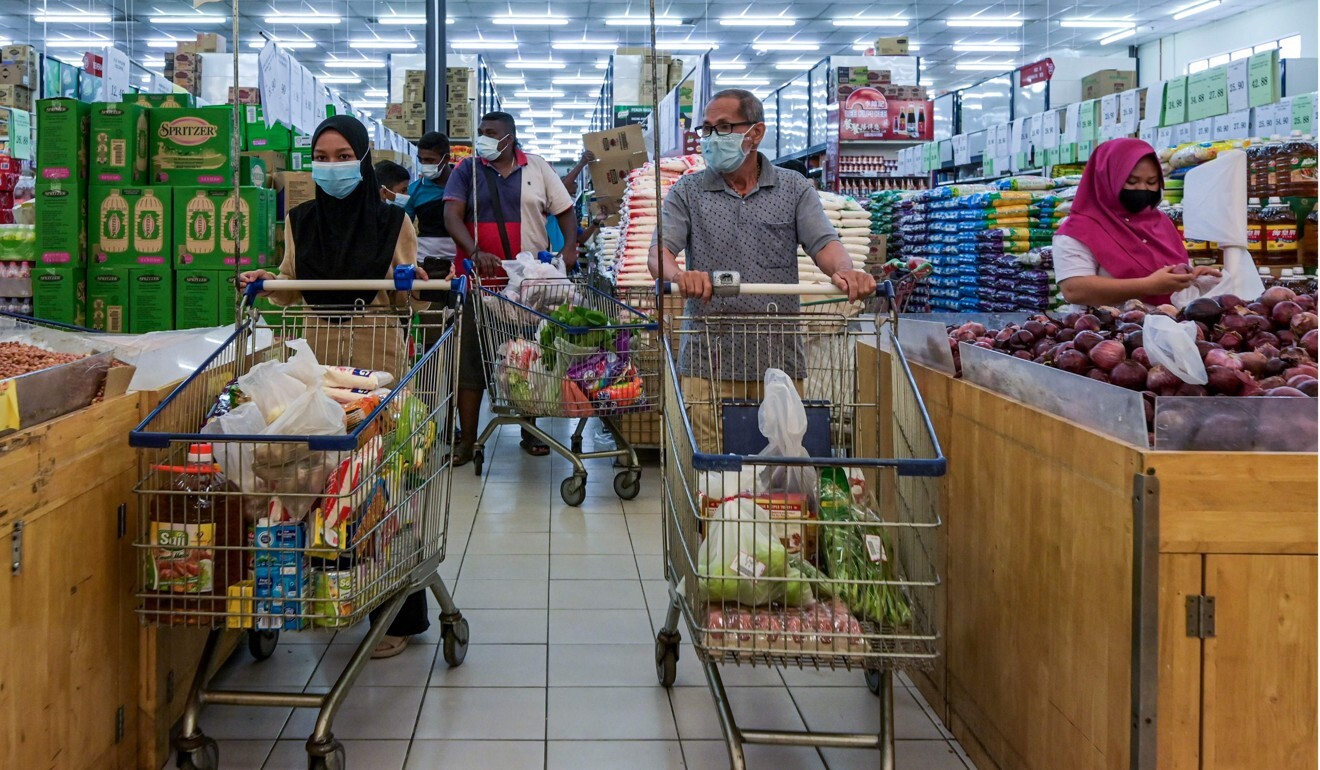
Following Tuesday’s emergency order, several opposition leaders issued sharply-worded statements criticising the government.
Lim Guan Eng, leader of the Democratic Action Party – one of three main parties in the opposition Pakatan Harapan alliance – said the prime minister’s omission of the emergency plan in his address to the nation on Monday raised “deep suspicion whether Muhyiddin is motivated solely by public health considerations to battle Covid-19”.
Lim suggested the under-fire government’s performance was unlikely to improve during the emergency as the suspension of parliament meant the opposition could no longer press for accountability or prevent abuses of power.
The three-party Pakatan Harapan alliance later issued a separate statement lambasting the prime minister. “Do not hide behind Covid-19 and burden the people with a declaration of emergency for the sake of saving yourself,” it said.
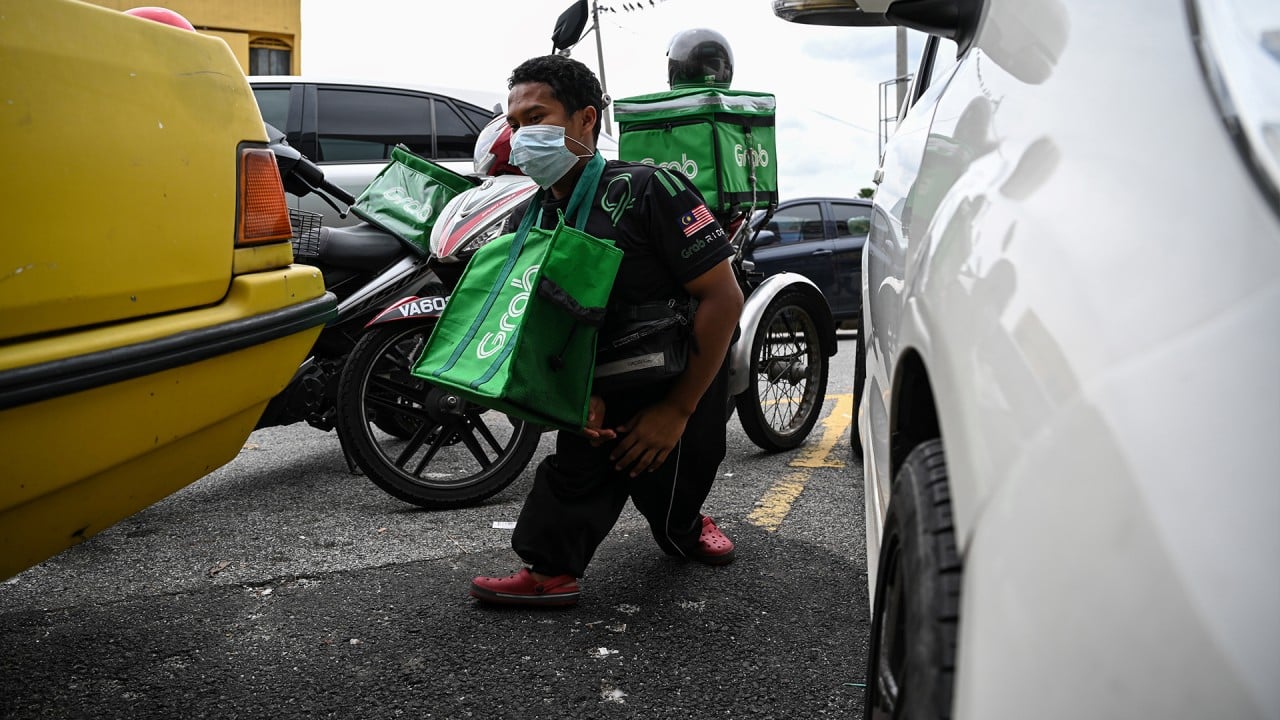
02:05
Disabled food delivery rider on front line of Malaysia’s fight against Covid-19 pandemic
Malaysia has for several weeks recorded four-digit daily coronavirus cases, with a total caseload of more than 138,200, after struggling to contain a fresh wave of infections fuelled by a snap election in the state of Sabah in September.
Six regions, including the wealthy states of Johor, Selangor and Penang – as well as Kuala Lumpur, the administrative capital of Putrajaya, and the federal territory of Labuan – will be placed on a strict lockdown while citizens living in other states with fewer daily new cases will be subject to less stringent so-called movement control orders (MCO). All interstate travel is banned.
The prime minister, speaking on national television on Monday, cited an official forecast of daily new cases jumping to 8,000 by late March or late May – based on a predictive modelling analysis – as the key reason for the new lockdowns. The first two waves of infections were quelled following a lockdown from March to June.
“Our health care system is under tremendous pressure now than at any other time since the start of the pandemic,” Muhyiddin said. “Unprecedented situations call for unprecedented measures.”
Malaysia’s Mahathir named one of world’s ‘most dangerous extremists’
On Tuesday afternoon, key Umno figure Nazri Abdul Aziz announced that he no longer backed the Muhyiddin government. That development means Muhyiddin now has the official support of 109 MPs, three short of a simple majority in the 222-seat parliament.
The emergency declaration grants Muhyiddin powers to suspend parliament until the order is lifted by the king. In his Tuesday speech, Muhyiddin underscored that no parliamentary sitting or election will take place while the state of emergency remained in place.
Malaysia’s slim budget vote win leaves Muhyiddin safe – for now
An independent committee comprising members of the government, opposition MPs and health experts will advise the king during the emergency. There was no immediate comment from opposition leader Anwar Ibrahim or Mahathir Mohamad – the 95-year-old ex-prime minister toppled by Muhyiddin last March – on whether they would be part of the committee.
Political analyst Azmil Tayeb told This Week in Asia the emergency would “buy some time” for Muhyiddin and his Perikatan Nasional alliance, though “elections are coming sooner or later especially after the vaccines arrive”.
“I hope the emergency only involves the suspension of parliamentary sittings, and does not include repression of rights and freedoms which we typically see in an emergency state,” Azmil said.
Additional reporting by Bloomberg

